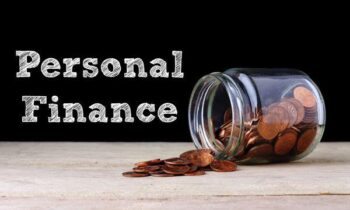Family Budget: How to organize your household finances
Family budget is an important topic for anyone who wants to have a healthy financial life. This is strategic planning that allows you to control household income and expenses, avoiding unnecessary expenses and ensuring that bills are always up to date.
When preparing a family budget, it is possible to identify the family’s main sources of income and fixed and variable expenses. This helps you have a clear view of your finances and make better decisions when spending money. Furthermore, the family budget allows you to set financial goals and establish strategies to achieve them.
With a well-structured family budget, it is possible to save money and invest in future projects, such as buying a property or taking a trip. Therefore, it is essential that everyone in the family is involved in financial planning and that there is a commitment to following the established goals.
What is a family budget?
A family budget is a financial plan that helps families manage their finances, control their spending, and save money to reach their financial goals. It is an essential tool for anyone who wants to organize their finances and avoid unnecessary debt.

Financial planning
The family budget is financial planning that helps the family define their financial goals and establish an action plan to achieve them. It allows families to have a clear view of their income and expenses, and helps identify areas where money can be saved.
Expense Control
The family budget is also an important tool for controlling expenses. It helps families identify where they are spending money unnecessarily and find ways to reduce those expenses. By controlling expenses, the family can save money and invest in their financial goals.
Importance of Savings
The family budget is also important for savings. It helps families identify how much money they are saving and find ways to save more. With savings, the family can invest in their financial goals, such as buying a house, a car or a trip.
In short, a family budget is an essential tool for anyone who wants to organize their finances, control their expenses and save money to achieve their financial goals. It is an effective way to manage your finances and avoid unnecessary debt.
What are the types of family budget?
The family budget is an important tool for controlling finances and ensuring that expenses do not exceed income. There are different types of family budgets that can be used to meet the needs of each family. Below are some of the most common types of family budgets:
Traditional budget
The traditional budget is the simplest type of family budget. In this model, the family lists all their monthly expenses and divides them into categories, such as food, housing, transportation, among others. Next, an estimate of monthly income is made and expenses are adjusted so that they do not exceed the amount available.
Zero-based budgeting
In zero-based budgeting, all expenses are evaluated as if they were new, regardless of whether they were incurred in the previous month. This means that the family must justify each expense and assess whether it is really necessary. The objective of this type of budget is to reduce expenses and avoid unnecessary expenses.
Budget by envelope
The envelope budget is a model that consists of separating money into different envelopes, each destined for a category of expenses, such as food, transportation, leisure, among others. This way, when an envelope runs out of money, the family knows they can’t spend any more in that category until next month. This model helps you better control your expenses and avoid unpleasant surprises at the end of the month.
Flexible budget
The flexible budget is a model that allows the family to adjust expenses according to variations in income. For example, if the family received extra income in a given month, it could increase spending in a certain category. This model is recommended for families that have variable incomes and need more flexibility in their budget.
In short, there are different types of family budgets that can be used to control finances and ensure that expenses do not exceed income. Each model has its advantages and disadvantages, and it is up to the family to choose the one that best suits their needs.
How to create a family budget?
A family budget is an essential tool for controlling finances and ensuring a family’s financial stability. To create an efficient family budget, you need to follow some important steps.
Determination of Family Income
The first step is to determine the monthly family income. This includes all sources of family income, including salaries, rent, pensions, among others. It is important that this income is realistic and based on net values, that is, after deducting taxes and other mandatory expenses.
Classification of Expenses
The next step is to classify family expenses into categories. This can be done using a spreadsheet or financial control application. The most common categories include housing, food, transportation, education, health, leisure, among others. It is important that expenses are recorded accurately and that the family has a clear picture of where they are spending their money.
Short and Long Term Goals
With expenses classified, it’s time to establish short and long-term goals. Short-term goals are those that can be achieved within a period of up to a year, such as paying off a debt or taking a trip. Long-term goals are those that take longer to achieve, such as buying a house or securing retirement.
To achieve these goals, it is important that the family carry out detailed financial planning, considering not only expenses, but also income and investments. It is necessary to have discipline and maintain control of finances to ensure that goals are achieved within the established deadline.
With these steps, it is possible to create an efficient family budget and ensure the family’s financial stability.
Tools and Methods
Managing family finances may seem like a difficult task, but there are several tools and methods available to help organize expenses and control your budget. In this section, three methods will be presented that can be used to manage family finances: financial management applications, budget spreadsheets and the envelope method.
Financial Management Applications
Financial management apps are digital tools that help organize personal and family finances. They allow the user to record their income and expenses, create budgets, track cash flow and receive alerts when a bill is due. Some examples of financial management applications are Mobills, GuiaBolso and Organizze.
Budget Spreadsheets
Budget spreadsheets are an option for those who prefer a more traditional method of financial control. They can be created in programs such as Excel or Google Sheets and allow the user to record their income and expenses, create expense categories and track the current balance. Additionally, budget worksheets can be customized according to the family’s needs.
Envelope Method
The envelope method is a technique that consists of separating money into different envelopes, each destined for a category of expenses. For example, one envelope can be allocated to food costs, another to transport costs, and so on. This way, you can see exactly how much money is being spent in each category and better control your budget.
The envelope method can be used in conjunction with financial management applications or budget spreadsheets for more precise control of family finances.





